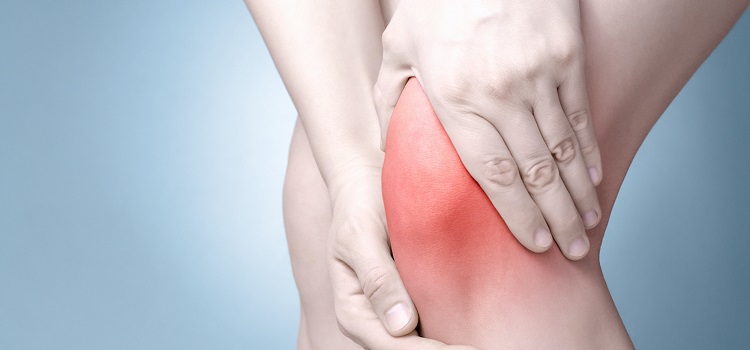- For SME and Groups
- For Individuals
Group Health Insurance
About Cigna Healthcare
Musculoskeletal Care Programme
Musculoskeletal Care Programme
Streamline care journey for your body
A key concept that drives our work here at Cigna is the idea of ‘Whole Person Health’. Other than noting the importance of having employers, employees and healthcare professionals work together for sustainable healthcare, being conscious of ‘Whole Person Health’ also means recognising the interconnectedness of our body and mind. First and foremost, effective identification and management of physical health conditions require us to be aware of our mental state. Conversely, poor physical health can further add to our mental stress.
In our experience as a leading health service provider, this correlation between physical and psychological health is more entwined than we think, even seemingly minor problems like that persistent back or joint pain affects our mental state. Research has established that there is a significant association between musculoskeletal and mental concerns - higher intensity of one tends to indicate a greater likelihood of the other1. In light of this, we have designed our corresponding musculoskeletal care programmes to help meet individual needs while remaining as comprehensive and sustainable as possible. Read on to find out how these issues may affect our overall health subtly and how we can streamline the care journey to manage them better.

Musculoskeletal health
In Singapore, musculoskeletal pains are experienced by a large proportion of the population, with up to 90% having at least one condition that affects the joints, muscles, and nerves2. For those with desk jobs and spend the majority of their day sitting in the office, it is a prevalent problem. A recent survey conducted by the Singapore General Hospital found that 73% of surveyed office workers in Singapore reported having pain in at least one of their body parts, including common conditions like knee, back, shoulder or neck pain3. This prevalence can be traced back to everyday activities and postural habits that may otherwise go unnoticed. For instance, poor posture and prolonged inactivity due to sitting are likely the main culprits when it comes to musculoskeletal problems. Unless they are properly managed, these pains, combined with a sedentary lifestyle, can have a higher risk of developing into chronic conditions like obesity, diabetes, cancer, heart problems, and even dementia4.

Musculoskeletal Care Programme
The Musculoskeletal Care Programme focuses on issues affecting the bones, muscles, ligaments, tendons, and nerves. We work with industry professionals like UrbanRehab Physio and Moving Space to provide a wide range of treatment options including physiotherapy, rehabilitation and strengthening, clinical Pilates, chiropractic and even Chinese medicine techniques based on every individual member’s assessment. Ultimately, these solutions are meant to be preventative just as much as they are reactive. Our goal is to guide users along a structured and holistic care journey that is tailor-made to fit their needs in achieving ‘Whole Person Health’.

Working with our Cigna case managers
Embarking on these care programmes with us entails a promise on our part that the experience will be customised, streamlined, and fuss-free with the help of our dedicated Cigna case managers. Backed by Cigna’s staff of board-certified physicians, an assigned case manager will work closely with the patient, their family, and other health care providers through every step of the care journey. This journey typically comprises the following six steps, with further adjustments made for individual needs:
Our case managers’ responsibility is to be a partner and an unfaltering source of support for the patient throughout the entirety of their care journey. This includes helping to coordinate the access to care, explore service and funding source alternatives, monitor progress to established health goals, assist with discharge planning and follow-up, as well as ensure that the patient’s benefits are used effectively.
Benefits for organisations and individual members
Beyond the assurance of a guided and streamlined care journey with the help of our case managers, the Musculoskeletal and Mental Care Programmes also deliver a myriad of benefits for both organisations and individual members. For the former, the Care Programmes serve as a simple and convenient one-stop-shop with specially curated care providers, as well as direct billing. The improved ease of use also comes from more effective monitoring that minimises service inconsistencies. This means that there will be reduced administrative hassle and fewer issues with the claims process, all of which allows for greater accountability.
For individual members, the two Care Programmes ultimately aim to improve the overall user experience. Healthcare should be transparent, assuring and easy to follow, so our care journeys will always strive to make things convenient and hassle-free with fewer claims denial and escalation. Combined with informed-decision making processes and evidence-based treatments, our Care Programmes have the capability to deliver improved healthcare outcomes for both employees and individual members at a sustainable level of healthcare expenditure.
Get a Quote Today
Let our consultants prepare and arrange a customised group health insurance plan that best meets your needs.
Over to you
The Musculoskeletal Care Programme represents our belief and push for the greater consideration of ‘Whole Person Health’ in our society’s care journeys. We want to make holistic and streamlined healthcare experiences the norm by anchoring our support in four key pillars - personal empowerment, comprehensive support, preventative healthcare, and cost-effective care. This means advocating for self-care, awareness as well as better health and lifestyle decisions by guiding our clients and members with clinically-trained experts at every step of the way. On a wider level, it also encompasses a promise to reduce the rising costs of care by lowering the need for medical visits, therapy and rehabilitation via more sustainable, self-directed programmes. If you are keen to learn more about these Care Programmes, you can get started by reaching out to one of our Case Managers. As always, we are with you - together, all the way.
Resources:
1. Yazdi, M., Karimi Zeverdegani, S., & MollaAghaBabaee, A. (2019). Association of derived patterns of musculoskeletal disorders with psychological problems: a latent class analysis.
2. Praveen, J., Lim, T., & O'Brien, A. (2014). Neck Pain in Changi General Hospital: An Observational Study.
3. Ker, P. (2016). Work-Related Musculoskeletal Disorders in Singapore: Symptoms and Stats. Healthxchange.
4. Corliss, J. (2015). Too much sitting linked to heart disease, diabetes, premature death. Harvard Health Blog.
References:
- Cigna. (2019). 2019 Cigna 360 Well-Being Survey: Well & Beyond.
- Cigna (2019). Chronic Stress: Are we reaching health system burn out?.
- Corliss, J. (2015). Too much sitting linked to heart disease, diabetes, premature death. Harvard Health Blog. Retrieved 22 September 2020, from https:/www.health.harvard.edu/blog/much-sitting-linked-heart-disease-diabetes-premature-death-201501227618.
- Goh, T. (2019). Singapore spends $3.1 billion on stress-related illnesses annually: Study. The Straits Times. Retrieved 22 September 2020, from https:/www.straitstimes.com/singapore/health/singapore-spends-31-billion-on-stress-related-illnesses-annually-study.
- Ker, P. (2016). Work-Related Musculoskeletal Disorders in Singapore: Symptoms and Stats. Healthxchange. Retrieved 22 September 2020, from https:/www.healthxchange.sg/wellness/health-work/work-related-musculoskeletal-disorders-singapore-symptoms-stats.
- Ng, Y., Voo, P., & Maakip, I. (2019). Psychosocial factors, depression, and musculoskeletal disorders among teachers. BMC Public Health, 19(1). https:/doi.org/10.1186/s12889-019-6553-3
- Praveen, J., Lim, T., & O’Brien, A. (2014). Neck Pain in Changi General Hospital: An Observational Study. Proceedings Of Singapore Healthcare, 23(3), 209-217. https:/doi.org/10.1177/201010581402300306
- Yazdi, M., Karimi Zeverdegani, S., & MollaAghaBabaee, A. (2019). Association of derived patterns of musculoskeletal disorders with psychological problems: a latent class analysis. Environmental Health And Preventive Medicine, 24(1). https://doi.org/10.1186/s12199-019-0784-x
Related articles
Contact Us
Popular Links
Resources
Connect with us
© Cigna Healthcare. All rights reserved.
Cigna Europe Insurance Company S.A.-N.V. Singapore Branch (Registration Number: T10FC0145E), is a foreign branch of Cigna Europe Insurance Company S.A.-N.V., registered in Belgium with limited liability, with its registered office at 152 Beach Road, #33-05/06 The Gateway East, Singapore 189721.
The Cigna Healthcare name, logo, and other Cigna Healthcare marks are owned by The Cigna Group Intellectual Property, Inc. licensed for use by Cigna Corporation and its operating subsidiaries. All products and services are provided by or through such operating subsidiaries, and not by Cigna Corporation. Such operating subsidiaries include Cigna Europe Insurance Company S.A.-N.V. Singapore Branch.

